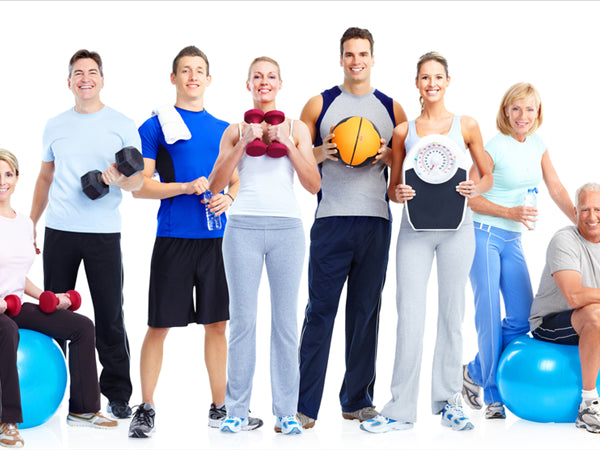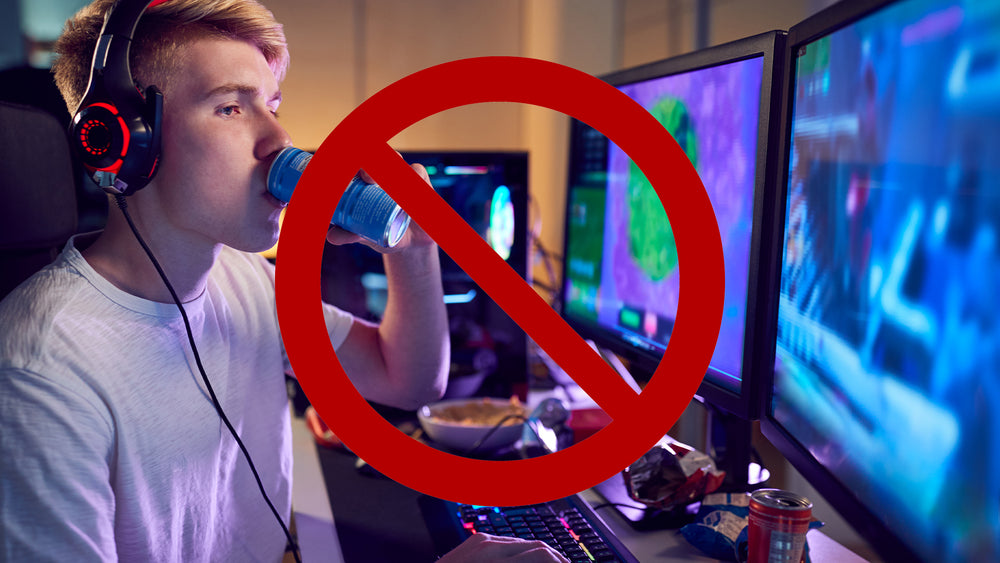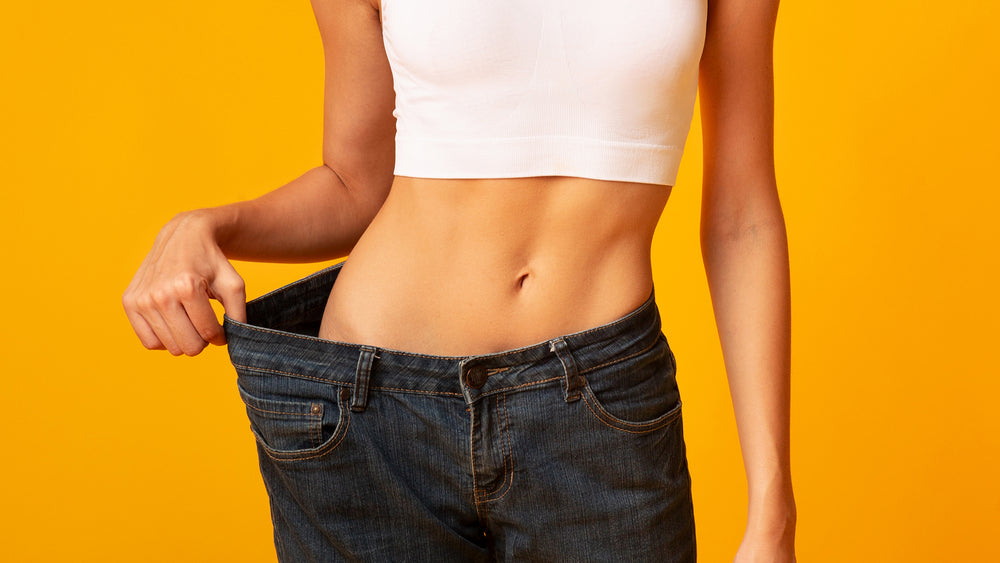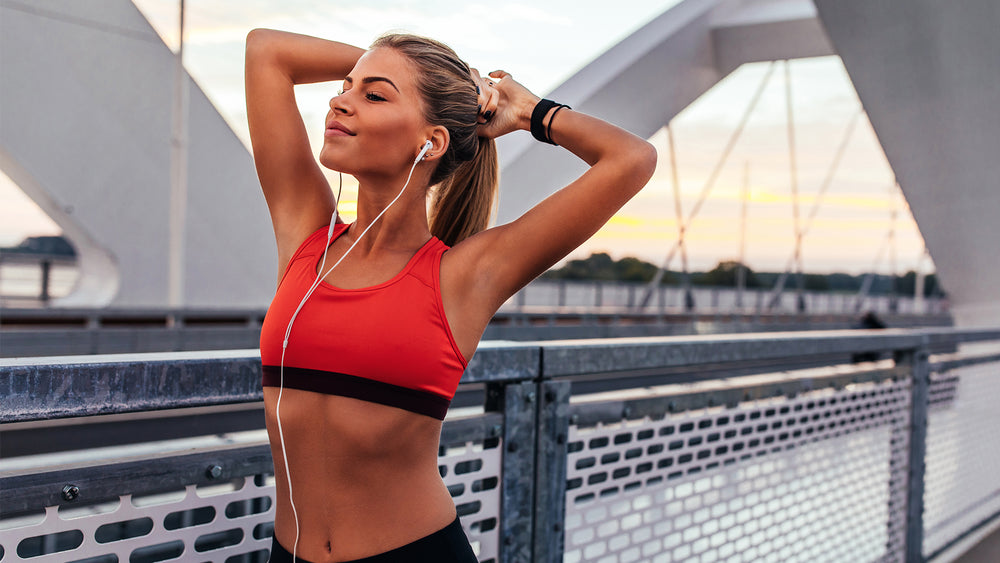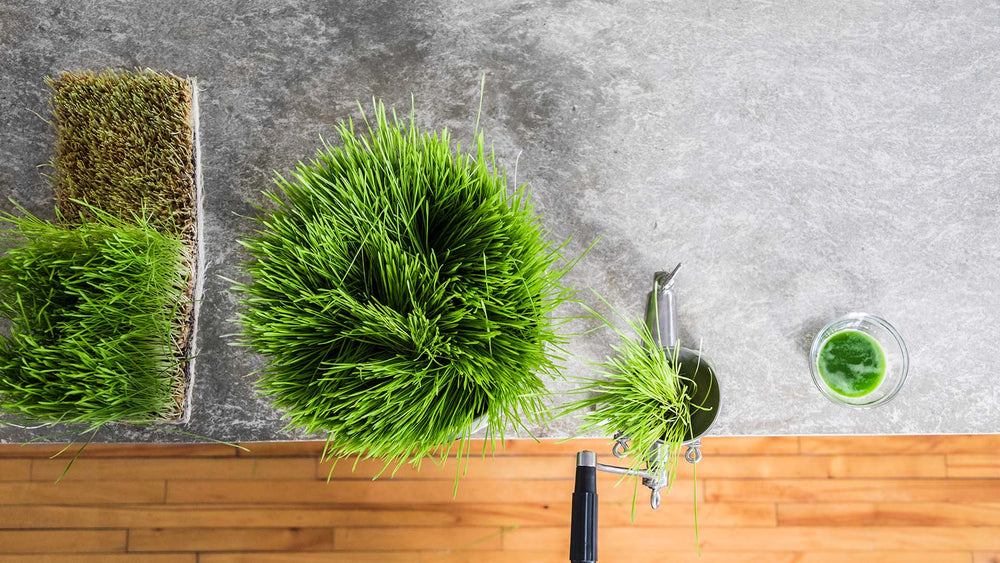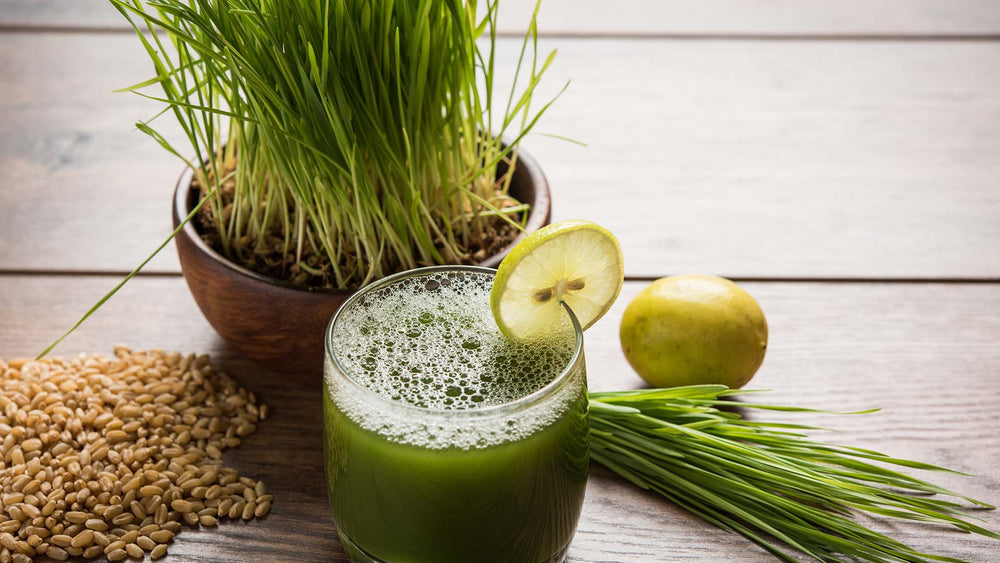We need to start fine tuning our diet and exercise routines as we get into our 50s, if we haven't done so already. Aging is a natural part of life, and we should embrace it and stay healthy and active. Adults over 50 are prone to aches and pains due to thinning bones and other age-related problems, including the inability to absorb certain vitamins as well as we did when we were younger, hearing and memory loss, and failing eyesight. These issues won't cause as much damage if you follow these 10 tips for staying healthy after 50.
1. Eat a Balanced Diet
If you're over 50, your daily diet should consist of fruits, vegetables, grains (predominantly whole grains), proteins (poultry, lean meat, eggs, peanut butter, etc), dairy, oil (olive oil, canola oil or oil from avocados or nuts). Avoid sugary foods and solid fats. The National Institute of Health recommends that people over 50 eat seafood twice a week. Salmon and trout oily fish containing omega 3s are the best choice avoid frying fish, bake, steam or grill them instead. Include poultry or lean meat for protein. Eating for heart health and to prevent osteoporosis and diabetes are important at any age, but even more so when you're over 50, so banish the junk food and eat natural and healthy to live longer.
Snack on low calorie foods including nuts, seeds, fruits or yogurt. If you're tempted to pick up a granola bar, just make sure to read the ingredients on the label. Some “healthy” granola bars may contain as much sugar and as many calories as a candy bar.
Calorie limits vary according to gender and activity level. Active women over 50 need about 2,000 calories a day; slightly active women about 1,800 and women who aren't physically active need about 1,600 calories. Active men over 50 need between 2,400 and 2,800 calories a day; slightly active men need between 2,200 and 2,400 calories and men who aren't physically active need about 2,00 calories a day.
2. Your Sense of Thirst and Taste Changes as You Age
You're not imagining it; your taste buds grow weaker as you age. Women notice a change in taste buds between 40 and 50, men between 50 and 60 Sweet and salty taste diminishes first, then bitter and sour. This may cause cravings in some people for junk food or salty food, but resist the temptation as eating these “extreme” tasting foods can cause problems if you overindulge.
Adults over 50 may experience dehydration because our sense of thirst becomes less pronounced as we age. Drink water with meals or sip a small cup every hour or so to stay hydrated. Drinking enough water helps you avoid constipation and possible urinary tract infections.
3. Exercise More
It's never too late to start exercising. Regardless of your age or physical condition, an appropriate exercise routine will make you healthier and happier. If you are disabled or have diabetes, arthritis or other ailments, ask your doctor about the best exercises for you. Walking, yoga and other light activities are safe for most people.
Here are some simple exercises for older adults who may be out of shape:
Incorporate stretching exercises into your fitness routine. Stretching helps maintain flexibility and enables you to keep a more youthful range of motion. Yoga and Pilates increase your core body strength and help joints to stay flexible. This reduces the chance of sore muscles and injury from common everyday activities (like reaching for items on a shelf in the kitchen).
Improve your strength by lifting hand weights (between 2 pounds and 5 pounds each to start). It will tone your arms and reduce your chance of lower back injury.
Tai Chi ( a series of gentle, fluid movements) is designed to fight stress and improve coordination, though they have many other health benefits. Tai Chi is a low-impact exercise that helps improve balance, an issue for many older adults. Better balance means fewer falls and fewer injuries. Tai chi is taught in many health clubs and community centers, and can be performed without using any special equipment. Like yoga, it consists of positions that require focus and calm, deep breathing.2
Housecleaning, doing yardwork and taking the stairs instead of the elevator all count toward your daily quota of exercise. Keep moving during your daily routine and you'll reap the benefits. If you're over 50, you can participate in any exercise or sport you enjoyed when you were younger- dancing, biking, tennis, swimming, etc. – unless your doctor advises against it.
4. Get Preventative Health Screenings
Getting regular checkups is important at any age, but the over 50 set needs to be more vigilant about health screenings and follow up visits. It may be the difference between prosperous golden years or cancer, diabetes and heart disease. You should have a complete physical exam every two or three years, more often if your doctor suggests it. You should get a colonoscopy every ten years, a blood glucose check every three years beginning at age 45 and a hearing test every three years. Go to your dentist for a cleaning and check up twice a year, and have an eye exam every two to four years. Women should get a mammogram every one to two years. Men should ask their doctors about receiving tests for prostate or testicular cancer, as this varies with the individual.
5. Enjoy New Hobbies or Rediscover Old Ones
Whether you're still working, retired or semi-retired, always find time to enjoy your favorite hobby. Gardening, going to art galleries or museums, drawing and writing are examples of hobbies that will keep you engaged and creative. Older adults often rediscover hobbies and activities they pursued when they were in school and pick up where they left off. You may even find you can make money from a hobby, such as sewing or writing, and turn it into a small business
6. Concentrate on Quality Friendships
Making and maintaining friendships when we're over 50 can be a challenge. It's easy to make friends in school or when we're young working adults meeting for Happy Hour drinks a few nights a week. Adults with young children can form friendships with other parents. After the kids have left home and we're “empty nesters”, we may find ourselves without a defined social circle. As we age, our perception of friendship changes, too. Most people over 50 value close friendships with a few like-minded individuals rather than brief social outings with superficial friends.
If you're lonely, you can find new friends over 50 by joining meet-up groups or clubs dedicated to your hobbies or interests. Join the church choir or take a yoga class. Volunteer for the United Way, Red Cross or another charity organization. You can even meet people by walking your dog or visiting the same café each day for lunch. Getting out and about is the antidote to depression and loneliness over 50.
7. Get Enough Sleep
People over 50 experience a change in sleep patterns. This is a normal part of aging, and it may make you to go to sleep earlier or wake up earlier. Insomnia and restless sleep aren't a result of normal aging. If you experience sleep disturbances on a regular basis, take a look at some of the common causes of inadequate shuteye. Stress, depression, lack of exercise and side effects from medications may impair sleep. A bad back, acid reflux or other health problems may disrupt sleep. Frequent urination and menopause commonly disturb sleep patterns for women over 50, and watching TV or using a computer or Smartphone right before bed cause delays in getting to sleep for everyone.
Develop a bedtime routine to improve sleep quality. Wind down before sleep by shutting off all electronics, taking a warm bath or doing some deep breathing exercises. Wear a sleep mask or use blackout shades if light from outside (or next door) keeps you awake. Avoid the use of sleeping pills, as this may cause dependence.
If you experience more than an occasional sleepless night, talk to your doctor to find the cause of your insomnia. You may need a change in medication or counseling for stress or depression. A major life trauma, such as the death of a loved one, may cause anxiety and sleeplessness.
8. Get More of Vitamins and Nutrients Essential for Adults Over 50
Adults 55 and over should increase their intake of calcium. Women in this age group are especially prone to low bone density and 80% of osteoporosis patients are female. Men and women over 50 should get 1200 mg of calcium per day. Milk, yogurt, dairy products, broccoli and calcium-fortified cereals and juices are just a few of the foods that provide moderate to high levels of calcium. As we age, it may be difficult to obtain all the calcium we need from our diet, so a supplement or multivitamin is recommended. Vitamin D, the sunshine vitamin, is another essential nutrient we need more of as we get older. The older we get, the harder it is for our bodies to process direct sunlight into Vitamin D. Taking a Vitamin D supplement and eating plenty of fish, liver and vitamin-fortified milk and cereal will keep our level of this vitamin high over age 50.
9. People Over 50 May Need B12 Supplements
Vitamin B12, essential for proper nervous system function, also combats depression, and increases focus and memory. It isn't as easily absorbed by our bodies as we age due to a decreased amount of stomach acid. Most people over 50 can get enough Vitamin B12 by including supplements and fortified foods in their diets. Don't give up on getting Vitamin B12 through natural sources such as liver, shellfish, red meat, Swiss cheese and eggs, but be aware that your body won't absorb as much as it did when you were younger. Folate, also referred to as Vitamin B9 is well-known as an essential vitamin for pregnant women, since it prevents birth defects. However, it's also necessary as we get older to help guard against hearing loss, macular degeneration (which can lead to vision loss) and heart disease. Folate is found in spinach, beets, whole grains, kidney beans, orange juice, wheat germ and fortified cereals.
10. Exercise and Eat Yogurt for Better Bones
Arthritis and osteoporosis are common ailment affecting people over 50, but there are ways to prevent these conditions or reduce their severity. Regular exercise, including walking and jogging, can strengthen your bones. Even vacuuming and other house cleaning activities can increase bone density. Dancing and aerobics are great for building endurance, preventing heart disease and protecting your bones. Swimming, biking and other non-weight-bearing exercises won't make your bones stronger. You'll need to perform weight-bearing exercises regularly for at least six months to see an increase in bone density.
Eating more yogurt is another proven way to keep bones strong as we get older. According to an article on Livescience.com, milk and yogurt may increase hipbone strength.3 Research conducted at the Institute for Aging Research in Boston concluded that participants who consumed high amounts of milk and yogurt suffered fewer hip fractures than people who didn't.
11. Stay Calm
Stress damages our emotional and physical health at any age, but in can be devastating as we get older. Chronic stress can lead to overeating or undereating, insomnia, depression, memory loss and reduced immunity to disease. Practice meditation and calming deep breathing techniques. Exercise to improve your health and produce happiness- boosting endorphins. If stress persists, talk to your doctor.
A Wheatgrass Supplement Can Be Part of Your Health Plan if you're Over 50
Wheatgrass juice is served at trendy health clubs to the younger set, but it's much more than a hip drink for 20 some things. In a cleaner, more compact supplement pill, Wheatgrass Love's supplements – Zeal O2, Happy Girl and REVV -provide you with chlorophyll, one of nature's most perfect nutrients, 20 amino acids, over 103 enzymes and high-value B-complex vitamins (including B12). Happy Girl and Zeal O2 contain selenium for improved cardiovascular function, calcium, zinc gluconate (for a better immune system) and a blend of over a dozen nutrient-packed herbs, including green tea extract, ginkgo biloba, ginseng, cayenne pepper, fo-ti, white willow and hawthorne berry. Happy Girl mood enhancer is formulated to fight mild depression and anxiety. Read about it. And don't let the name fool you – men and women over 50 can take it to feel better and improve their overall health.
Zeal O2, a weight loss supplement and weight maintenance tool, offers ultimate nutrition for dieters and people of any age who want to stay healthy after they've achieved their weight loss goal. Read about Zeal O2.
REVV Instant Energy Wafers give you extra endurance, clarity and focus whenever you need it. These great tasting chocolate mint wafers are made with wheatgrass, L-Taurine and periwinkle herb to improve memory and energy any time of day. Chew one or two wafers as needed. Read more about REVV.
Talk with your doctor about the health benefits of wheatgrass and wheatgrass supplements if you're over 50. Satisfaction guaranteed if you order Zeal O2, REVV or Happy Girl or your money back!
- http://www.nytimes.com/2012/12/06/booming/sense-of-taste-changes-with-age.html?_r=0
- http://www.mayoclinic.org/healthy-living/stress-management/in-depth/tai-chi/art-20045184
- http://www.livescience.com/27346-milk-yogurt-strengthen-hipbones.html

